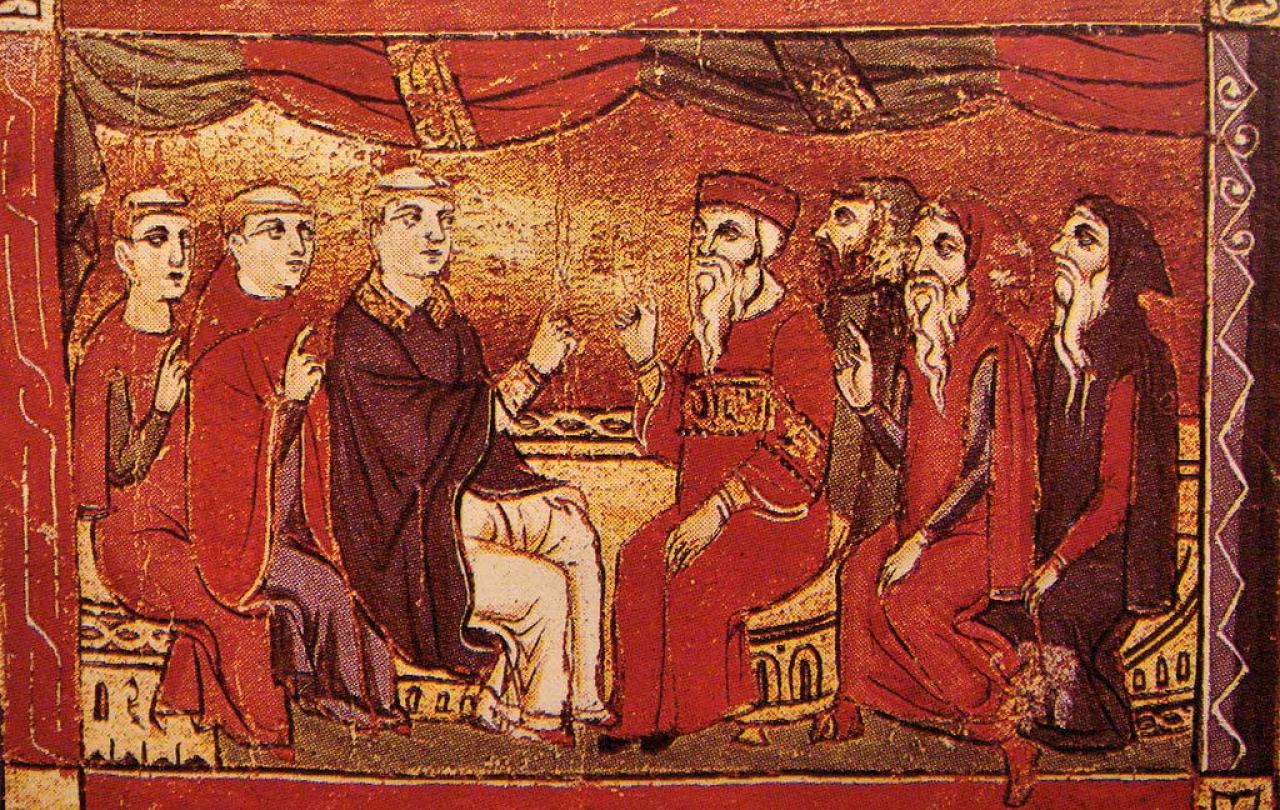
As I entered Holy Week, I entered the cinema to watch Dune 2. A less conventional pilgrimage to begin Holy Week. Sci-fi as a genre doesn’t tend to grab my attention, but the interest in this film captivated me. When I saw Dune’s first episode, to my shame, I fell asleep. So, I was hoping for more from the second, and it did not disappoint.
I sat watching the film on 70mm IMAX, with the direction by Denis Villeneuve and the accompanying score by Hans Zimmer. I was overwhelmed by their music, visuals, and storytelling. The story of Dune, based on a novel by Frank Herbert, follows the protagonist Paul Atreides, a messianic figure on the desert planet of Arrakis. A phrase repeated throughout the film stood out to me: “as it was written". In Dune *spoiler alert*, the protagonist, Paul, is depicted as a Messiah, although sometimes it is unclear whether he believes that himself. He is aware of the prophecy surrounding this foretold figure: “Lisan al Gaib” and plays into them to win the favour of those in the Fremen community following him. The Freman, the people of Arrakis, are in despair and desperate for a saviour to fulfil their abandoned hope. When they see Paul work wonders and fulfil the prophecy, they repeat the phrase “as it was written”, sometimes in quite comedic fashion. In the film, we often see Paul manipulate these foretellings so people will see him as their messiah, even if he is not.
As it is Holy Week, this got me thinking about how we can know that Jesus is the true Messiah, not just one who knew of the Prophecies to become it. I’ve always found C. S. Lewis's framework helpful in understanding who Jesus is: was he a lunatic, liar or Lord? Was Jesus a crazy figure or simply a liar who fooled people into thinking he was God? Or was he who he said he was? Lord. As I pondered this in Holy Week, one confession from the Gospel of Mark offers helpful framing as to how we know that Jesus is God and the true Prophet who fulfils the meaning of “as it was written”.
The confession of the Roman Centurion in the Gospel of Mark depicts the proclamation of who Jesus was as he sees Jesus dying on a cross and says, “Surely this man was the Son of God”. The Roman Centurion was an outsider, not one who would have been familiar with the ways Israel, or the prophecies of the Messiah foretold. It was not the disciples of Jesus who were first to confess, but a Roman guard, the last person you’d think would be ready to acknowledge that Jesus was God – and yet, he is the first to understand who Christ is. The Son of God.
In Dune, only those within the Freman community were able to identify a Messiah. But in the Gospels, we have a confession of one who stands outside the community—an outsider, a hardened soldier. This disclosure witnesses to who God is—not as a made-up figure or pseudo-messiah but as the one foretold—the one who comes to turn despair into hope, mourning into joy, and death into life–as it was written.





